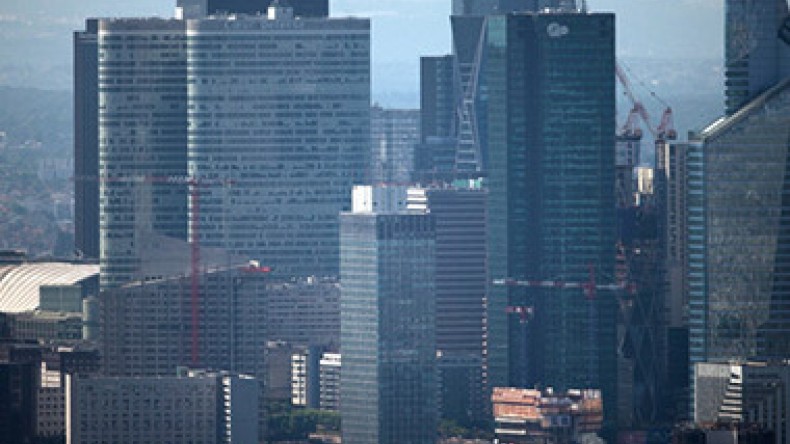
Foreign investors ditching France for Russia
By Patrick L Young
From RT
Short-term traders may be fleeing emerging markets, but long-term investors are endorsing a new world order.
It remains odd that some users deploy the internet to promote virulently protectionist discourse. After all, isn’t it oxymoronic to dismiss interlinked global trade via a network named… er… the World Wide Web? The core DNA of the digital era is unrelentingly globalizing, freeing the ether to facilitate import/export, allowing a stream of information and commerce to criss-cross the world with unprecedented freedom.
Nowadays every commercial interaction via your cellphone, computer or tablet to your fingertips regardless of your jurisdiction, marks our inherently globalized age. True, some reactionaries try to censor access to free information but then again, tragically, various governments are pretty good at restricting the access of ordinary citizens to prosperity too.
In a world obsessed with initials, ‘FDI’ is little known outside the business world, yet it represents a vital facet of the modern economy. ‘Foreign Direct Investment’, to elongate this inelegant abbreviation, is the statistic which denotes how much money overseas interests have transferred into another nation. No nation can survive without FDI, and indeed FDI largely defines your nation’s prosperity. Governments ignore it at their peril. Moreover many are dumb enough to take it for granted, like France, more of which later.
FDI takes time. Buying heavy plant, even kitting out substantial IT offices, requires months. Even modest bureaucracy adds to the lag. Hence, for all the media fixation with short-term movements in the stock markets, FDI is a fascinating tool for swiftly identifying long-term winning economies: companies rarely invest for the short-term, factories are built for years of productive manufacture.
Similar to nature, investors abhor an economic vacuum. Few nations have more closely mastered the fine art of ritually committing economic suicide than modern France which, after decades of anti-business rhetoric and economic incompetence, has finally fallen from grace in the latest UN report. France has suffered a shocking 77 percent collapse in FDI to a 27-year low. Anybody advocating high taxes as an engine of prosperity must ponder that statistic.
Naturally the top of the table is hardly surprising. The world’s largest economy, the USA, attracts the most FDI (albeit a declining share under anti-business President Obama) while the world’s most populous nation, China, comes second (indeed if fifth-placed Hong Kong was counted alongside the mainland, then China would top the table). Westerners keen to detract from post-Communist resurgence will be surprised by Russia’s elevation to third place. Then again given that high taxes deter investment, is it any surprise that this vast resource-rich landmass should not be highly appealing to investors given an attractive flat tax regime? Moreover Russia’s top-tier financial center initiatives mean that Moscow will boast a top-class legal system ensuring intermediaries and investors are able to resolve disputes and protect their investments easily with recourse to the best of Anglo-Saxon legal precepts.
In other words Russia presents an increasingly attractive FDI environment.
The FDI ratings demonstrate a remarkable fourth place contender, the British Virgin Islands. This dramatically underlines economic realpolitik. Lest you missed the core thrust of global commerce: tax too much and you will deprive your citizens of investment. In the aftermath of the EU raping depositors in Cyprus, FDI funds moved to the safest offshore homes rather than risk being pillaged in the ongoing Eurocrisis.
Therefore investment-friendly states such as Canada and Singapore are key top ten FDI destinations, as is Brazil, where vast opportunities await. Meanwhile the old continent of Europe had only two nations in the top ten. The UK (9) reflected its ongoing position as a proud free trading nation, despite the Blair/Brown debacle. Closing out the top ten was Ireland, which garners a remarkable proportion of the EU’s FDI alongside Belgium, the Netherlands and Luxembourg which, as any good tax expert will note, are (like BVI) ideal destinations for structuring tax efficient investments. Sadly 15 of 27 EU nations saw an FDI decline: the old continent is going backwards.
Nations such as India may ponder why they can manage only 16th place in the FDI beauty parade. Then again it is hardly surprising to anybody who has spent even a few moments endeavoring to circumnavigate the labyrinthine regulatory process which marries the worst hangover of Empire with a tragic bureaucratic inclination towards meddling behind the scenes, if not in full public.
Encouraging FDI delivers greater prosperity. Thwarting it damns the citizenry.
Newsfeed
Videos






























